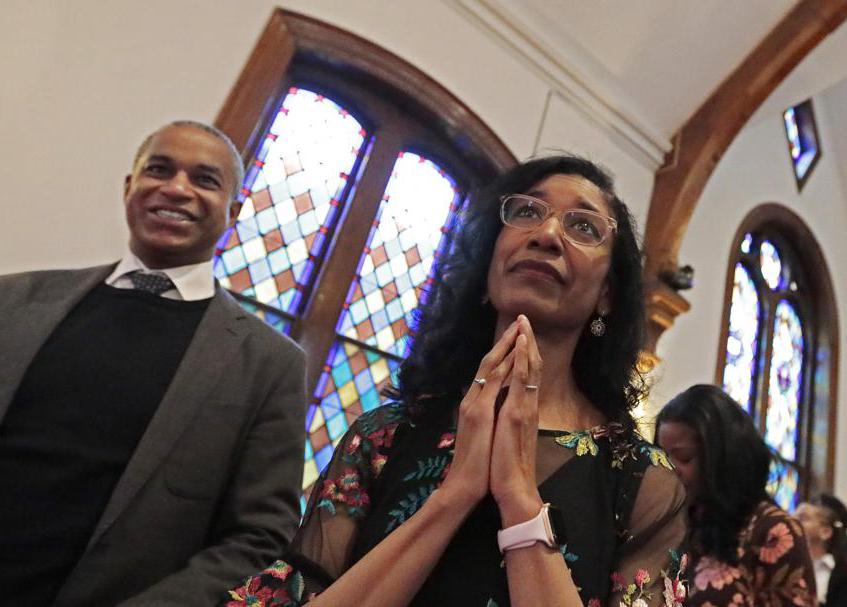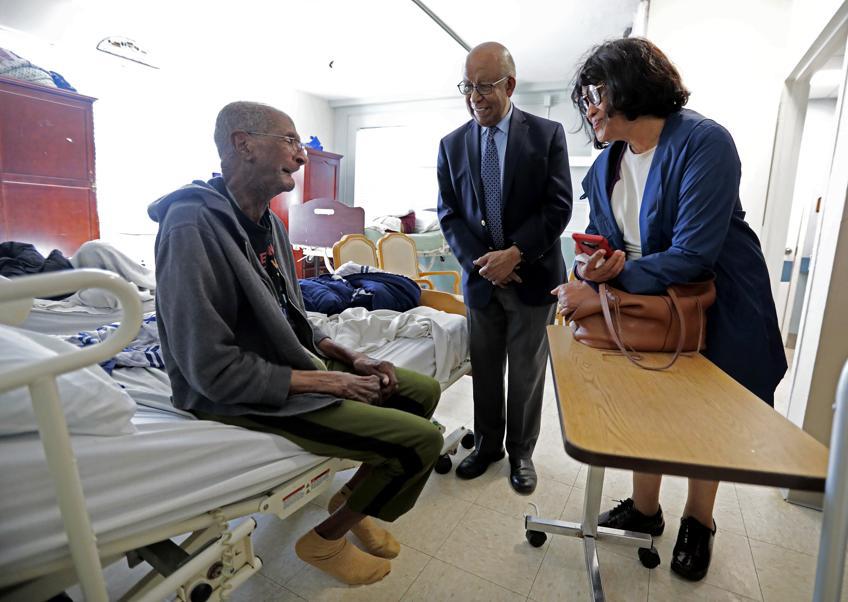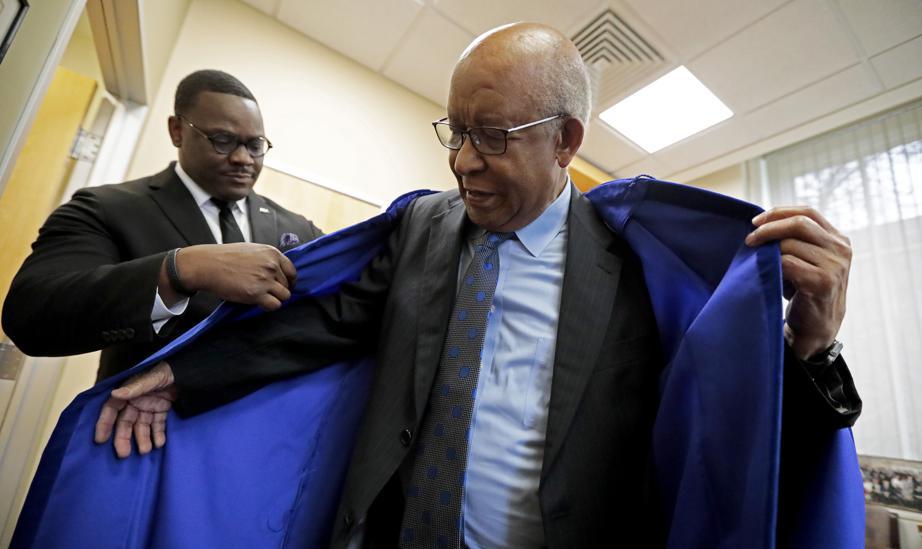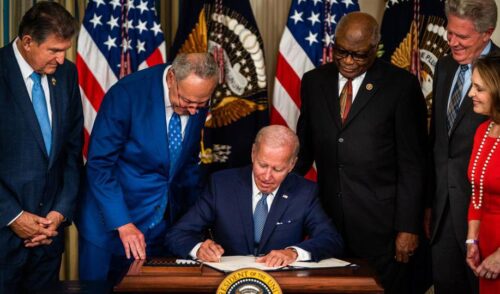
The Rev. Wesley A. Roberts reached toward his dense, crowded bookshelf and extracted a binder.
With one flip, he found a description of his first sermon.
Date: August 1960.
Location: Clarksonville Baptist Church in Jamaica.
Title: “The Tongue.’’
He pried a second binder from the walls. Hundreds more entries. From his time preaching in Canada, to Connecticut, to Massachusetts.
He stopped at sermon 2,635. Beneath it lay an empty space, reserved for his final sermon.
Roberts, 87, has delivered God’s word to Peoples Baptist Church of Boston for nearly half his life. The pastor has advised politicians through tumult, led the church through the rapid transformation of the South End, and consoled residents through life’s busiest moments. He compared his role to that of a father, who after years of rearing his family through good and bad times, now reckons with emptying the nest.
The process of preparing, delivering, and archiving his words had become as routine as locking a door, unlocking a smartphone, or reciting the Lord’s Prayer before a meal.
But on this day, the Thursday before his final address, preparation seemed anything but routine. As Roberts reviewed his handwritten outline, tinges of emotion broke through his characteristically calm countenance. The man — who few have seen angry, sad, or distressed — fidgeted with his fingers as he reflected on his life’s work.
“This will be the end,’’ Roberts said.
* * *
Roberts almost didn’t come to Peoples; he wanted to be a professor. He had been to the United States before to study theology near Philadelphia, and had enough of the racism he experienced.
Roberts and his wife, Sylvia, struggled to find housing. Sylvia Roberts would scour newspaper ads for available leases. Landlords wouldn’t take Jamaican tenants, he said, fearful they’d push white tenants out.
“I decided I would never come back to the US,’’ he recalled.
But a colleague coaxed Roberts to Massachusetts, where he began lecturing at Gordon-Conwell Theological Seminary in Hamilton in 1972. He juggled lecturing and interim pastor roles for more than a decade. Then, in 1979, the Rev. Richard M. Owens stepped down at Peoples, and a search for the next pastor began.
Initially, Roberts wasn’t interested. “I didn’t think the pastorate was where the Lord was calling me,’’ he said.
But if the church couldn’t convince him, his four children would. He noticed how they interacted with Peoples membership, versus the white churches he served throughout New England. They seemed more at home.

Roberts was installed on Oct. 31, 1982, and watched several notable events unfold in the decades after.
In 1983, Mel King became the first Black candidate in Boston’s general mayoral election. A series of violent incidents fueled tensions between Black residents and city police, culminating with the citywide stop-and-frisk of Black men and young boys after Charles Stuart fatally shot his pregnant wife in 1989 and blamed the killing on a nonexistent Black man.
The Black fabric of the South End began unraveling, as rising prices pushed out longtime residents — and their churches. When Roberts joined Peoples as interim pastor in 1980, 45 percent of South End residents were non-Hispanic Black. In 2024, one in 10 South End residents were non-Hispanic Black, according to city-analyzed census data.
The church faced internal challenges, too. It didn’t have a clear budget. Roberts’s predecessor applied to develop the dilapidated building next door, but it didn’t seem as if the church could afford it. There was a real possibility that members might move elsewhere, and drain the resources that keep a church running.
Roberts, a trained historian, understood the history at risk.
The church started with a couple dozen members, who dedicated the African Meeting House in Beacon Hill in 1806. The congregation quickly became a hotbed for abolitionism, civic engagement, and community.
The church followed its congregants to the South End in 1898, and Roberts was resolute in keeping it there.
Under Roberts’s direction, tithing was prioritized, bank accounts were consolidated, and capital campaigns grew. Peoples redeveloped the building next door.
“If we can’t do it right, we won’t do it at all,’’ Roberts said.
He was also president of the Black Ministerial Alliance for 10 years, and tapped different pastors to shepherd different causes afflicting the community such as criminal justice, education, and economic development. He organized a church partnership with public schools in the region. He became a confidant for Boston mayors and governors.
Deaconess Iris Truell, Roberts’s executive assistant, warmed up to him quickly. She remembered rushing from a graduate study to hear him preach, and arrived just as he led the congregation in prayer.
“I had never heard a prayer like it,’’ she said.
It was as if “he picked us up, and carried us in his arms to Jesus,’’ Truell said.
For Roberts, the years went by without regret.
Waning energy didn’t call him to retirement, nor his health. Until recently, he started each day — except Sunday — with a few miles on the treadmill. He answered requests for prayers, retirement home visits, and funeral services with urgency.
But he also was cognizant of his age. The times he wasn’t able to visit a daughter in Connecticut. Or join a son for a New York Giants or Jets game. It added up.
“Every weekend, I’ve been here,’’ Roberts said, gesturing to the church all around him on one afternoon.
After a yearslong search for Roberts’s successor, Peoples this year selected the Rev. Art J. Gordon.
In many ways, Gordon is Roberts’s opposite. Roberts doesn’t preach about politics; Gordon works as Governor Maura Healey’s community engagement director. Gordon is 36. Roberts is methodical; Gordon uses his emotions to drive his preaching.

He succeeds Roberts at a pivotal historical moment, where faith-based leaders are pondering how to respond to President Trump’s sweeping changes to immigration, federal employment, and constitutional law.
Gordon is confident he can use his strong political ties to help Peoples be what it has always been: “a Black church . . . at the forefront of societal change.’’
* * *
At 9 a.m. on Sunday, March 30, the block around the South End church was uncharacteristically packed. Cars fit like a Tetris puzzle in the church’s lots. Congregants stood in empty street parking spaces to buy time for friends.
A few minutes before 10 a.m., Gordon draped Roberts in the pristine, royal blue robe he once wore 45 years ago. The Rev. Steve Robinson of Mattapan Baptist Church led the pastors, family members, and church officers in prayer. The group shuffled around, getting into place for the worship procession.
Roberts looked at his watch, and a slight expression of exasperation interrupted his countenance. It was 10:14. Nearly a quarter past the worship time.
One final time, Roberts passed the rows of church robes, the clear bowl of white mint Life Savers, and the wooden stairs toward the church sanctuary.
The rhythms of the church singing “Jesus, The Light of the World’’ grew louder.
We’ll walk in the light, beautiful light.
Come where the dewdrops of mercy shine bright.
Roberts ascended the pulpit stairs and looked out to the packed pews. The few hundred congregants present rivaled pre-pandemic numbers.
As routine, the pastor beckoned visitors to become full-time members. With a completion of a card in their pews, “we will be in touch with you,’’ Roberts said.
He paused.
“Or at least, Rev. Gordon will be in touch with you,’’ Roberts continued with a laugh.
Roberts was a leader who always knew what to say through his parishioners’ best and worst times. This time, he faltered at some points. The finality of this long chapter was setting in.
“I thought a long time about what I should preach on, but I could not think of anything else than my love for Jesus,’’ Roberts said. “So the focus really should not be me, but on the Lord.’’
He bid farewell to his radio listeners. He descended the pulpit stairs. He shook hands with congregants lining the pews’ aisles. He approached the rear to greet the members.
One last time.
Tiana Woodard can be reached at tiana.woodard@globe.com. Follow her @tianarochon.


